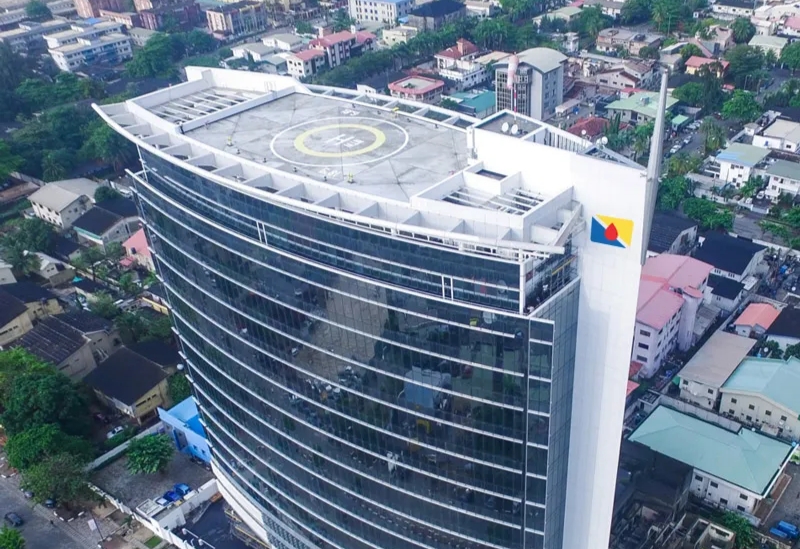Minister of Health, Kwabena Mintah Akandoh, is expected to make explosive revelations today about the ownership and operations of the controversial Lightwave Health Information Management System (LHIMS). This digital platform manages patient records nationwide on behalf of the NHIA.
Insiders at the Ministry of Health, say the Minister’s planned stakeholder briefing, could expose politically connected individuals behind the multi-million-dollar contract, which has come under heavy scrutiny for non-performance and questionable payments.
Emerging details suggest that Dr Nana Ayew Afriyie, the New Patriotic Party (NPP) Member of Parliament for Effiduase-Asokore and former Chair of Parliament’s Health Committee, is deeply entangled in the deal.
According to ministry sources, Lightwave eHealthcare Solutions Limited has already received US$66 million of a US$100 million contract. Yet, only about half of the promised 800 health facilities have been digitized nearly eight years after the project was launched. The company is now lobbying aggressively for the outstanding US$34 million, allegedly threatening legal action to compel payment.
Despite this, major system breakdowns have been reported across public hospitals, forcing many to revert to manual record-keeping and worsening delays for patients.
Dr Ayew Afriyie is alleged to have significant business interests in other medical supply contracts with the state. Reports indicate that some of his other companies conduct medical examinations for recruits to state security services.
Sources within the Ministry describe a “network of interlinked health deals” involving the MP, his wife, and private companies supplying consumables to government hospitals.
“This goes far beyond one contract; it’s an entire ecosystem of conflict of interest,” said one insider familiar with the procurement chain.
At a stakeholders’ conference held yesterday, Tuesday, October 28, 2025, at the Alisa Hotel in Accra by the National Health Insurance Authority (NHIA), managers of the National Health Insurance Scheme (NHIS), Mr Akandoh, hinted that he would publicly address the matter today.
“There is some current development about our electronic records of our patients in the country. It’s widely discussed,” he stated.
He added, “For us in the Ministry of Health, we just don’t come out to speak. When we tell you the problem, where we have inherited them from, we also tell you the solutions, and today, I wouldn’t want to pre-empt what we will be doing tomorrow, but I can assure you tomorrow morning by 9 a.m., we’ll gather all stakeholders and take you through from what we inherited at the ministry, what we are going through, and specifically what we are doing to fix the challenge.”
The Minister’s remarks have heightened expectations that the government will finally explain why such a sensitive national database containing the medical information of top officials, judges, and even the presidency was handed to a private contractor without parliamentary oversight.
Policy analysts warn that the Lightwave controversy could expose Ghana’s health data to security breaches or ransom threats if the dispute is not resolved soon.
“This is not merely a data management issue,” one analyst told Daybreak newspaper. “You don’t outsource the medical records of your president and your judges to a third party and certainly not without strict national oversight.”
The standoff has also raised fears of yet another judgment debt scandal, with Lightwave allegedly preparing to sue for the outstanding US$34 million.
Eric Agyei, Project Manager for LHIMS, admitted that disruptions to hospitals’ digital records were mainly due to administrative delays and the government’s failure to renew its contract, which expired in 2024.
“We wrote for an extension which didn’t materialise … we didn’t hear anything until a new government came into office,” he told the AM Show on the Multimedia network.
He added that the company has faced unauthorised individuals posing as Lightwave staff who have been conducting “fake audits” at hospitals.
The NHIA announced that several of its electronic hospital management systems are currently experiencing temporary nationwide disruptions, and it has introduced a temporary Claims Check Code (CCC) platform to prevent a total collapse of services, warning hospitals not to pass delays onto patients.
Agyei explained that although the system “has been working all this while,” the expiry of the contract in 2024 and subsequent delays in securing an extension have thrown the project’s future into uncertainty.
The state, through the Ministry of Health’s National E-Health Project, entered into a contract with LHIMS, a private company tasked with managing the nation’s digital health records. The arrangement covers highly sensitive information, including the medical data of some of Ghana’s most powerful figures.
The contract, officials said at the time, was designed to improve the efficiency of healthcare delivery and support the Free National Health Insurance Scheme. But years later, questions are mounting over why such a critical and sensitive function was outsourced, and why accountability has been scarce.
Under the agreement, Lightwave was expected to train local professionals and hand over operations to the ministry within four years (2019–2022). However, the company missed that deadline and successfully secured an extension to 2024.
Since then, insiders say Lightwave has been lobbying aggressively to recover the outstanding $34 million balance, even threatening legal action to compel settlement.
The move has sparked fears of a possible judgment debt that could cost taxpayers millions more, and, more worryingly, the risk that sensitive national health data will be exploited as leverage.
“This is not merely a data management issue,” one policy analyst told the Accra-based Daybreak newspaper, on condition of anonymity. “This is a matter of national security. You don’t outsource the health records of your president, your judges, and your monarch to a third party, especially without parliamentary oversight.”
The extent of the problem has caused delays at government hospitals, especially in the Ashanti Region, as facilities switch back to manual record-keeping and patients experience longer waiting times.
According to Agyei, the problem began with the scheduled expiry of the LHIMS contract toward the end of 2024. He said that because the then-administration requested integrations with systems such as the Birth and Death Registry, the company sought an extension. But the extension was not granted, and as months passed under the new government, Agyei said there was no official communication.
He added that “we made efforts to engage the Minister of Health or the ministry … because it’s been close to six months and nobody has called to get to know anything about the system” a project he described as “one of the novel systems that the ministry is running.”
Beyond the contract limbo, Agyei also lamented that the company is dealing with unauthorised actors posing as Lightwave staff who are carrying out audits at facilities.
“If anyone comes in the name of Lightwave … they should really let us know,” he warned.
For its part, Lightwave eHealthcare Solutions Limited has publicly reaffirmed its commitment to Ghana’s e-health vision despite operating without a renewed formal contract for several months. The firm states that while the system remains functional in many facilities, the lack of investment and formal support is causing technical issues and undermining sustainability.
For its part, Lightwave eHealthcare Solutions Limited has publicly reaffirmed its commitment to Ghana’s e-health vision despite operating without a renewed formal contract for several months. The firm states that while the system remains functional in many facilities, the lack of investment and formal support is causing technical issues and undermining sustainability.
Meanwhile, the NHIA has instructed providers to use a mobile phone-based Claims Check Code (CCC) platform as a temporary solution and warned facilities against passing delays onto patients. Still, Lightwave eHealthcare Solutions Limited, developers of LHIMS, maintains that it will continue to prioritise patients and healthcare workers despite unpaid arrears and unresolved operational challenges with the Ministry of Health.
The company, which has powered Ghana’s digital health system for more than a decade, has been struggling to keep operations running amid unfulfilled financial commitments from the Ministry.
Recent reports about the uncertainty surrounding LHIMS prompted the Ministry to reach out, pledging to settle outstanding payments and requesting the company’s cooperation to address urgent system issues. In response, Lightwave reinstated its furloughed technical and support staff over the weekend to restore functionality and ensure health facilities across the country could continue accessing essential digital services.
Nevertheless, the company indicated that the promised payments have not been received, and the draft agreement suggested by the Ministry falls short of creating a fair and sustainable partnership. Despite financial challenges, Lightwave reaffirms its commitment to supporting healthcare delivery while managing its limited resources.
The company emphasised that it aims to minimise disruptions to hospital operations as discussions with the Ministry proceed.
It said that for over 10 years, the LHIMS has supported efficient healthcare delivery by improving patient care, preserving medical records, and strengthening service coordination across public hospitals, saying they remain hopeful that the Ministry will act in good faith to sustain this vital partnership.”
The post Health minister blows cover off US$100 million NHIS-Lightwave records scandal today appeared first on The Herald ghana.




